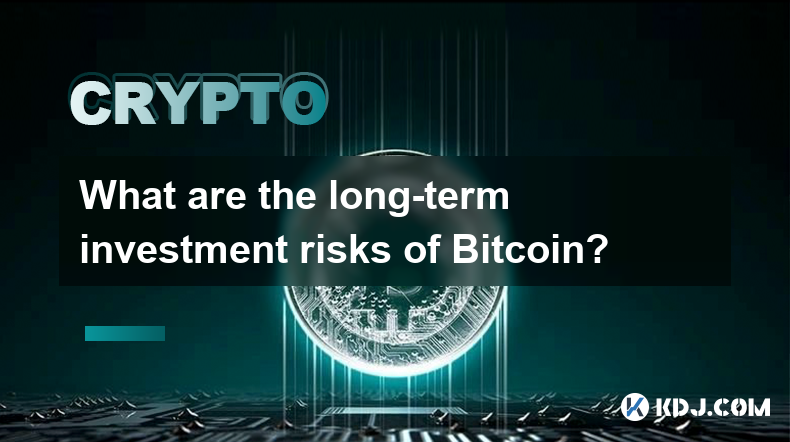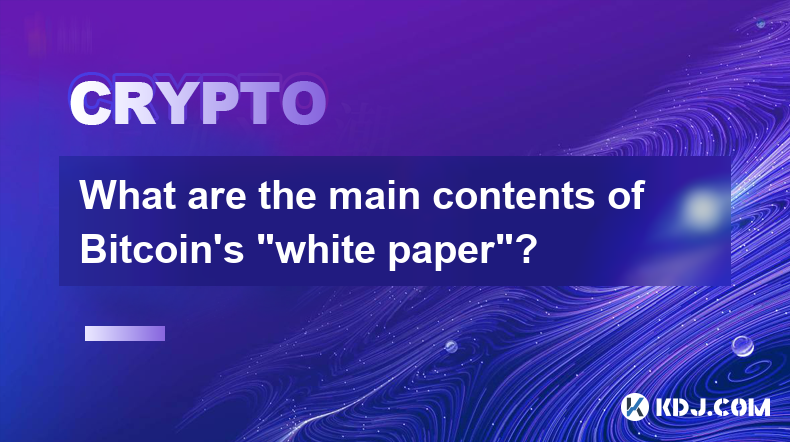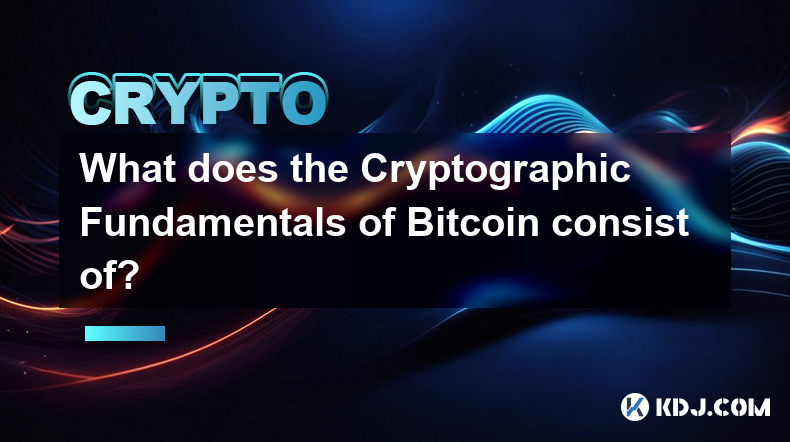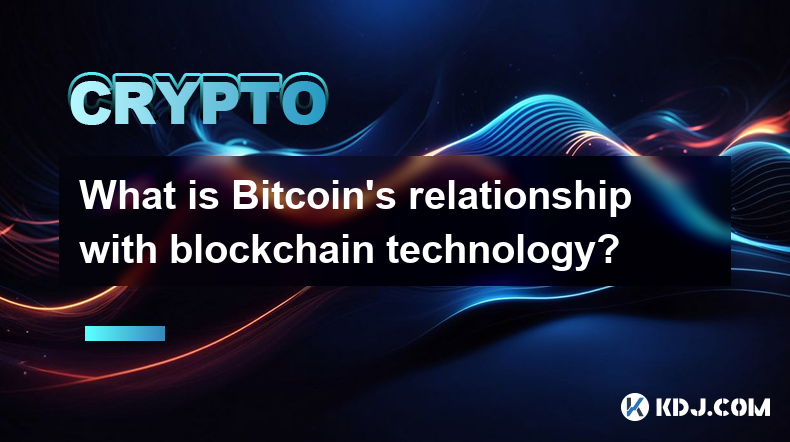-
 Bitcoin
Bitcoin $96,604.0476
-1.45% -
 Ethereum
Ethereum $2,752.0205
0.52% -
 XRP
XRP $2.5833
-0.87% -
 Tether USDt
Tether USDt $1.0000
-0.06% -
 BNB
BNB $657.7850
0.32% -
 Solana
Solana $173.4050
0.38% -
 USDC
USDC $1.0000
0.02% -
 Dogecoin
Dogecoin $0.2449
-3.00% -
 Cardano
Cardano $0.7719
-2.90% -
 TRON
TRON $0.2357
-3.45% -
 Chainlink
Chainlink $17.6899
-3.88% -
 Avalanche
Avalanche $25.5840
0.64% -
 Sui
Sui $3.4127
0.21% -
 Stellar
Stellar $0.3324
-0.86% -
 Litecoin
Litecoin $128.0813
-3.56% -
 Toncoin
Toncoin $3.6632
1.63% -
 Shiba Inu
Shiba Inu $0.0...01546
-0.49% -
 Hedera
Hedera $0.2148
-1.82% -
 UNUS SED LEO
UNUS SED LEO $9.7239
0.27% -
 Hyperliquid
Hyperliquid $24.7014
0.92% -
 Polkadot
Polkadot $5.0399
-2.52% -
 MANTRA
MANTRA $7.5462
0.22% -
 Bitcoin Cash
Bitcoin Cash $320.3260
-1.23% -
 Bitget Token
Bitget Token $4.9112
2.81% -
 Ethena USDe
Ethena USDe $0.9995
0.07% -
 Dai
Dai $1.0002
0.01% -
 Uniswap
Uniswap $8.9178
-2.78% -
 Monero
Monero $235.3515
0.22% -
 NEAR Protocol
NEAR Protocol $3.4964
-0.41% -
 Pepe
Pepe $0.0...09610
-0.19%
How do Cardano's nodes run?
Cardano's node architecture, comprising block-producing, relay, and edge nodes, ensures secure, scalable, and decentralized operation.
Feb 19, 2025 at 12:12 am

Key Points:
- Cardano's node architecture consists of three types of nodes: block-producing nodes, relay nodes, and edge nodes.
- Block-producing nodes are responsible for creating new blocks and adding them to the blockchain.
- Relay nodes forward transactions and blocks between other nodes.
- Edge nodes provide a lightweight way for users to interact with the Cardano network.
- Cardano's node architecture is designed to be secure, scalable, and decentralized.
How Do Cardano's Nodes Run?
Cardano's node architecture is designed to be secure, scalable, and decentralized. The network consists of three types of nodes: block-producing nodes, relay nodes, and edge nodes.
- Block-producing nodes are responsible for creating new blocks and adding them to the blockchain. To become a block-producing node, you must stake a certain amount of ADA, Cardano's native cryptocurrency. The amount of ADA you stake determines your chances of being selected to create a new block.
- Relay nodes forward transactions and blocks between other nodes. They do not create new blocks themselves. Relay nodes help to keep the Cardano network running smoothly by ensuring that all nodes are up-to-date with the latest transactions and blocks.
- Edge nodes provide a lightweight way for users to interact with the Cardano network. They do not store the entire blockchain, but they can send and receive transactions and query the blockchain for data. Edge nodes are ideal for users who do not want to run a full node or who have limited resources.
Cardano's node architecture is designed to be secure, scalable, and decentralized. The use of block-producing nodes, relay nodes, and edge nodes helps to ensure that the network is always up and running and that all users have access to the same data.
FAQs:
- What is the difference between a block-producing node and a relay node?
A block-producing node is responsible for creating new blocks and adding them to the blockchain. A relay node forwards transactions and blocks between other nodes.
- How do I become a block-producing node?
To become a block-producing node, you must stake a certain amount of ADA. The amount of ADA you stake determines your chances of being selected to create a new block.
- What are the benefits of running a Cardano node?
Running a Cardano node helps to keep the network running smoothly and secure. It also allows you to earn rewards in the form of ADA.
- How do I set up a Cardano node?
There are several ways to set up a Cardano node. You can use the official Cardano software, or you can use a third-party node provider.
- What are the hardware requirements for running a Cardano node?
The hardware requirements for running a Cardano node are relatively low. You will need a computer with at least 4GB of RAM and 10GB of storage space.
Disclaimer:info@kdj.com
The information provided is not trading advice. kdj.com does not assume any responsibility for any investments made based on the information provided in this article. Cryptocurrencies are highly volatile and it is highly recommended that you invest with caution after thorough research!
If you believe that the content used on this website infringes your copyright, please contact us immediately (info@kdj.com) and we will delete it promptly.
- DTX Exchange: The Next Big Crypto Play That's Flying Under the Radar
- 2025-02-22 23:15:25
- SOL May Dip Lower Before Having an Explosive Rally, ETH Rival Solana (SOL) Analyst Says
- 2025-02-22 23:15:25
- Is Yeti Ouro Poised to Surpass XRP in the Crypto Market? Here's What You Need to Know!
- 2025-02-22 23:15:25
- DTX Exchange: The Potential Best Utility Coin of 2025
- 2025-02-22 23:15:25
- DTX Exchange (DTX) Attracts Ethereum (ETH) and Cardano (ADA) Holders With Unmatched Potential for Rapid Gains
- 2025-02-22 23:15:25
- Dogecoin Price Stagnation And Emerging Alternatives
- 2025-02-22 23:05:25
Related knowledge

What are the long-term investment risks of Bitcoin?
Feb 22,2025 at 05:30pm
Key PointsVolatility and price fluctuationsRegulatory uncertaintySecurity risksCompetition from altcoinsMarket manipulation and scamsTransaction feesEnvironmental concernsLong-Term Investment Risks of BitcoinVolatility and Price FluctuationsBitcoin's high volatility is a double-edged sword. While it has the potential to generate substantial returns, it ...

What are the main contents of Bitcoin's "white paper"?
Feb 21,2025 at 04:36am
Key Points:Understanding Bitcoin's Genesis: The White Paper's IntroductionA Decentralized Digital Currency: Bitcoin's Core ConceptBlockchain Technology: The Foundation of Bitcoin's Immutable LedgerProof-of-Work: Securing Bitcoin's NetworkThe Design of Bitcoin's Currency: Issuance, Scarcity, and DivisibilityBitcoin's Potential Applications and Future Pro...

How does Bitcoin's distributed ledger ensure consistency?
Feb 22,2025 at 10:06pm
Key Points:Bitcoin employs a distributed ledger, also known as a blockchain, to maintain a tamper-proof and consistent record of transactions.The blockchain is a decentralized network of computers that collectively validate and store transaction data.Bitcoin's distributed ledger ensures consistency through consensus mechanisms and cryptographic algorith...

What does the Cryptographic Fundamentals of Bitcoin consist of?
Feb 21,2025 at 12:06pm
Key PointsUnderstanding the cryptographic algorithms used in BitcoinFamiliarization with the Bitcoin blockchain and its underlying mechanicsExamination of the security measures that protect Bitcoin from attackAnalysis of the decentralized nature of Bitcoin and its implicationsDiscussion of the scalability and transaction fee issues associated with Bitco...

What is Bitcoin's relationship with blockchain technology?
Feb 22,2025 at 07:00pm
Bitcoin's Intertwined Relationship with Blockchain TechnologyKey Points:Definition of blockchain technology and its decentralized natureBitcoin's utilization of blockchain for secure and immutable transactionsThe role of blockchain in verifying and confirming transactionsEvolution of blockchain technology beyond Bitcoin's cryptocurrency applicationsUnde...

How do Bitcoin mining pools work?
Feb 21,2025 at 09:07pm
Key Points of Bitcoin Mining Pools:Understanding Bitcoin Mining PoolsSteps to Join a Bitcoin Mining PoolChoosing the Right Mining PoolBenefits and Considerations of Mining PoolsHow do Bitcoin mining pools work?Understanding Bitcoin Mining PoolsBitcoin mining pools are distributed networks of mining participants who combine their computing power to solve...

What are the long-term investment risks of Bitcoin?
Feb 22,2025 at 05:30pm
Key PointsVolatility and price fluctuationsRegulatory uncertaintySecurity risksCompetition from altcoinsMarket manipulation and scamsTransaction feesEnvironmental concernsLong-Term Investment Risks of BitcoinVolatility and Price FluctuationsBitcoin's high volatility is a double-edged sword. While it has the potential to generate substantial returns, it ...

What are the main contents of Bitcoin's "white paper"?
Feb 21,2025 at 04:36am
Key Points:Understanding Bitcoin's Genesis: The White Paper's IntroductionA Decentralized Digital Currency: Bitcoin's Core ConceptBlockchain Technology: The Foundation of Bitcoin's Immutable LedgerProof-of-Work: Securing Bitcoin's NetworkThe Design of Bitcoin's Currency: Issuance, Scarcity, and DivisibilityBitcoin's Potential Applications and Future Pro...

How does Bitcoin's distributed ledger ensure consistency?
Feb 22,2025 at 10:06pm
Key Points:Bitcoin employs a distributed ledger, also known as a blockchain, to maintain a tamper-proof and consistent record of transactions.The blockchain is a decentralized network of computers that collectively validate and store transaction data.Bitcoin's distributed ledger ensures consistency through consensus mechanisms and cryptographic algorith...

What does the Cryptographic Fundamentals of Bitcoin consist of?
Feb 21,2025 at 12:06pm
Key PointsUnderstanding the cryptographic algorithms used in BitcoinFamiliarization with the Bitcoin blockchain and its underlying mechanicsExamination of the security measures that protect Bitcoin from attackAnalysis of the decentralized nature of Bitcoin and its implicationsDiscussion of the scalability and transaction fee issues associated with Bitco...

What is Bitcoin's relationship with blockchain technology?
Feb 22,2025 at 07:00pm
Bitcoin's Intertwined Relationship with Blockchain TechnologyKey Points:Definition of blockchain technology and its decentralized natureBitcoin's utilization of blockchain for secure and immutable transactionsThe role of blockchain in verifying and confirming transactionsEvolution of blockchain technology beyond Bitcoin's cryptocurrency applicationsUnde...

How do Bitcoin mining pools work?
Feb 21,2025 at 09:07pm
Key Points of Bitcoin Mining Pools:Understanding Bitcoin Mining PoolsSteps to Join a Bitcoin Mining PoolChoosing the Right Mining PoolBenefits and Considerations of Mining PoolsHow do Bitcoin mining pools work?Understanding Bitcoin Mining PoolsBitcoin mining pools are distributed networks of mining participants who combine their computing power to solve...
See all articles

















![BONK The Meme Coin MORE THAN ORDINARY [DOG] on Solana BONK The Meme Coin MORE THAN ORDINARY [DOG] on Solana](/uploads/2025/02/22/cryptocurrencies-news/videos/bonk-meme-coin-ordinary-dog-solana/image-1.jpg)


































































